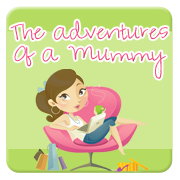No parents, even if they're parents of 3 kids will dare to tell you that they don't panic when their baby cries. Because all babies are different. As parents, they will try all means to pacify the child; may risk having a wasted milk (if interpret wrongly) until the child finally stops crying.
Of course, give a carer a few weeks or probably a month or two to interpret her baby.
I must admit it was a challenge to try to understand what Aricia wants. She's quite a hum-bao and "complains" alot. But as her mother, I was able to guess it right (read it carefully, it's based on intuition) what she wants after some time. Many times would tell hubby or KZ that she wants this & that.Even when she decided to change strategy, I was able to catch up with her. What can I say?? I'm her marder what?!
Was surfing online and thought this is interesting and would like to share it with you.
Priscilla Dunstan, founder of Dunstan Baby Language, has found that newborns use specific 'words' to express basic needs, such as hunger, gas or tiredness. The Dunstan Baby Language teaches parents how to identify these words within their baby's cries, therefore allowing them to respond appropriately to their baby's physical need and eliminating any trial and error by the parents that often leads to frustration and a decrease in self-confidence.
Independent research has proven that the use of the system results in happier, more contented babies who sleep longer and cry less. This breakthrough takes the guesswork out of parenting a new baby, and builds confidence in the parent's ability to care for their newborn. Unlike other newborn communication tools or programs, the Dunstan Baby Language is effective from day one and can be put into practice the day the baby is born.
The Words
The Dunstan Baby Language is truly universal. It is a primal, human language which we all share. The language is created by a reflex to a physical need -- just like a burp or hiccup. When a baby is hungry, has gas, is tired or simply uncomfortable, they produce a sound to communicate that condition. While babies have always communicated in this way, the Dunstan Baby Language is the first system that has identified these sounds and can teach their meanings to parents.
The Dunstan Baby approach has enormous potential to help all mothers and fathers better understand their newborn's cries and set each family on a path toward less stressful, more enjoyable parenting."
Key Figures and Statistics
As Priscilla viewed footage of crying babies from countries across the world, she quickly observed that all babies use 'words' to communicate their needs. In 2006, Dunstan Baby commissioned independent research that was guided by Brown University's leading global infant development centre. Results in Australia and the United States confirmed what Pricilla had identified -- the existence of a universal baby language independent of race, ethnicity and country of origin.
Key findings in Australia and the USA include*:
-- 90% of mothers believe that the language is valuable and would
recommend it to other parents
-- 70% find their child settles down faster after using the system
-- 70% feel more confident as a mother
-- 50% reported unbroken sleep for themselves and their baby
-- 2 out of 3 fathers also reported reduced levels of stress, greater
paternal involvement in the baby's care, and more positive marital
relationships
Dunstan Baby Language
This was only launched some time in November so I'm at the losing end. Those who benefit would be those who are expecting now.
Nevertheless, I tried to pick out the words from Aricia but her cries all sounded the same to me.
Of course, give a carer a few weeks or probably a month or two to interpret her baby.
I must admit it was a challenge to try to understand what Aricia wants. She's quite a hum-bao and "complains" alot. But as her mother, I was able to guess it right (read it carefully, it's based on intuition) what she wants after some time. Many times would tell hubby or KZ that she wants this & that.Even when she decided to change strategy, I was able to catch up with her. What can I say?? I'm her marder what?!
Was surfing online and thought this is interesting and would like to share it with you.
Priscilla Dunstan, founder of Dunstan Baby Language, has found that newborns use specific 'words' to express basic needs, such as hunger, gas or tiredness. The Dunstan Baby Language teaches parents how to identify these words within their baby's cries, therefore allowing them to respond appropriately to their baby's physical need and eliminating any trial and error by the parents that often leads to frustration and a decrease in self-confidence.
Independent research has proven that the use of the system results in happier, more contented babies who sleep longer and cry less. This breakthrough takes the guesswork out of parenting a new baby, and builds confidence in the parent's ability to care for their newborn. Unlike other newborn communication tools or programs, the Dunstan Baby Language is effective from day one and can be put into practice the day the baby is born.
The Words
The Dunstan Baby Language is truly universal. It is a primal, human language which we all share. The language is created by a reflex to a physical need -- just like a burp or hiccup. When a baby is hungry, has gas, is tired or simply uncomfortable, they produce a sound to communicate that condition. While babies have always communicated in this way, the Dunstan Baby Language is the first system that has identified these sounds and can teach their meanings to parents.
The Dunstan Baby approach has enormous potential to help all mothers and fathers better understand their newborn's cries and set each family on a path toward less stressful, more enjoyable parenting."
Key Figures and Statistics
As Priscilla viewed footage of crying babies from countries across the world, she quickly observed that all babies use 'words' to communicate their needs. In 2006, Dunstan Baby commissioned independent research that was guided by Brown University's leading global infant development centre. Results in Australia and the United States confirmed what Pricilla had identified -- the existence of a universal baby language independent of race, ethnicity and country of origin.
Key findings in Australia and the USA include*:
-- 90% of mothers believe that the language is valuable and would
recommend it to other parents
-- 70% find their child settles down faster after using the system
-- 70% feel more confident as a mother
-- 50% reported unbroken sleep for themselves and their baby
-- 2 out of 3 fathers also reported reduced levels of stress, greater
paternal involvement in the baby's care, and more positive marital
relationships
Dunstan Baby Language
This was only launched some time in November so I'm at the losing end. Those who benefit would be those who are expecting now.
Nevertheless, I tried to pick out the words from Aricia but her cries all sounded the same to me.




No comments:
Post a Comment